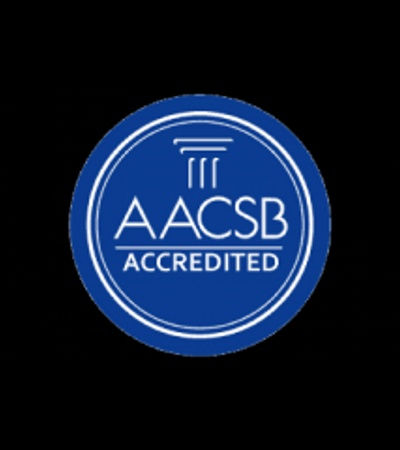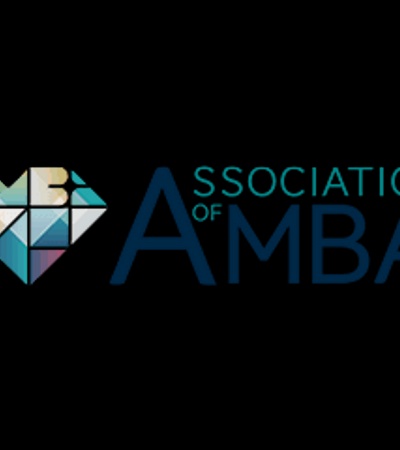Bachelor in Behavior and Social Sciences
Become an expert in human behavior
- Home
- Studies
- Undergraduate Degrees
- Bachelor In Behavior And Social Sciences
A UNIQUE BACHELOR IN BEHAVIOR AND SOCIAL SCIENCES
The study plan for the Bachelor in Behavior and Social Sciences at IE University has been designed with academic expertise at its core, using our academic faculty’s expert knowledge and the strong links between IE University and the professional world.
The Bachelor in Behavior and Social Sciences gives ambitious individuals the appropriate skillset to become professionals capable of solving real-world challenges. Through our hands-on teaching methodology, you’ll find the perfect balance between what is studied throughout your degree and the projects you embark on, which are based on real-world scenarios. This will enable you to develop a future-proofed profile, and able to adapt to the world of work when you graduate in four years.

BACHELOR IN BEHAVIOR AND SOCIAL SCIENCES STUDY PLAN
Quality
LEARN MORE ABOUT THE BEHAVIOR AND SOCIAL SCIENCES
FIRST YEAR - FOUNDATION YEAR
Year one is an introductory phase, focused on gaining a foundation in the social sciences. You will learn essential skills for becoming a behavioral scientist, such as team working and collaboration, as well as learning to observe, experiment and survey. You’ll get a thorough grounding in research methods and how they can be applied to solve problems related to social science, technology or human behavior, giving you a strong base for future years.
SECOND YEAR – ADVANCED FOUNDATION
In year two, you’ll study topics such as the psychology of cognition and emotion, leadership and influence, and be introduced to economics. You’ll broaden your knowledge of social science with a focus on psychology, anthropology, law and economics, as well as learning how to apply team working through leadership and influence. You’ll acquire extensive quantitative and qualitative tools to help you establish your analytical toolbox. Through this study you will have a broad set of knowledge and skills which you can develop into more niche areas in year three.
THIRD YEAR - PROFICIENCY
During year three, you will explore advanced topics related to behavior, including behavior and the brain, behavioral economics and decision-making, and UX/UI design. You’ll discover how to have a positive impact on people and organizations as you learn how to influence, persuade and bring about real change on an individual, organizational and social level. In this year you will have the choice to go on university exchange, do a company internship, or study elective courses.
FOURTH YEAR - SPECIALIZED TOPICS & CAREER PREPARATION
The final year prepares you to enter into the professional working world. You’ll cover specialized topics such as design thinking, brainstorming and creativity, behavior design and leading change in organizations. You will choose between two tracks, Experience Design or Talent Development. You’ll also develop and present your final Capstone Project, which will represent a culmination of everything you have learned throughout the program.
Tracks
EXPERIENCE DESIGN TRACK
In the digitalized world, where data is a precious resource, designing meaningful experiences can change people’s behavior in both the real world and the virtual. This track leverages quantitative analysis, building on what you’ve already learned about psychology and behavioral science and deepening your understanding of neuromarketing and neuroscience. You’ll apply concepts to real data to change people’s behavior towards products and services.
IS FOR STUDENTS WHO ARE…
Comfortable with quantitative analysis and want to explore how people interact with products and services, experimenting with designs and experiences that change their behaviors. They’re looking to leverage the knowledge hidden in data to pursue a career path in the digital and tech sphere.
Looking for...
Advanced understanding of quantitative methods and neuroscience, and how they can be applied in marketing to make products and services more appealing. You’ll be looking to gain a deeper understanding of human behavior, behavioral science and quantitative tools, adding value to your resume that traditional business students will not offer.
To become a...
- Customer experience designer
- Behavioral scientist
- Business analyst
- Product manager
- Customer insights analyst
- Market researcher
TALENT DEVELOPMENT TRACK
Traditional leadership models no longer work. To lead effectively, you need a holistic view of the People function in your organization. The Talent Development Track builds on what you have already learned about influencing people and organizational behavior to cover talent management, recruitment, and learning and development, and inform their work toward business objectives.
Covering everything from leveraging the data insights gleaned from HR analytics on large groups of employees, to designing one-to-one coaching sessions that will bring out the best in others, you’ll learn how to recruit, retain and manage staff effectively, and gain coaching skills in the process.
IS FOR STUDENTS WHO ARE…
Keen to make positive change in large organizations by applying their knowledge of human behavior to improve workplace culture. You’ll be wanting to improve the workplace experience, incentivizing and developing people to make them more productive and supportive.
Looking for...
A complete view of the HR function, expanding your view on how organizations operate and leveraging quantitative data to inform your decision-making. You’ll be looking to build your coaching and people skills to help others develop, while expanding your knowledge of leadership techniques and how to influence others impactfully and positively.
To become a...
- People consultant
- Talent specialist
- Learning and Development specialist
- Organizational development consultant
- HR associate
- Recruitment consultant
IE BUSINESS EXPERIMENTATION CLASS
Discover IE University's Business Experimentation class, where students demonstrate how they apply behavior and social sciences to influence business outcomes. See how academia and industry come together to shape tomorrow's business leaders.

Learning a new language can open up a world of new opportunities
IE University considers multiple language acquisition to be a key element of its educational model, leading to success in both work and study.
The Language Center at IEU is proud to offer students the possibility to study a wide range of languages, including French, German, Portuguese, Chinese, Arabic, Spanish, and English. With such a large variety of options, our students are able to personalize their academic path to meet their future career plans and objectives.

The Language Center at IEU
The Language Center helps students develop their multilingual communicative skills to help them flourish in the international labor market.
INTERNATIONAL ACCREDITATION
IE Business School has been granted the prestigious “Triple Crown Accreditation” by the most highly respected business school accreditation associations. This honor is shared with a select few, with a mere 97 business schools worldwide (less than 1% of all business schools in the world) as of March 2020. The “Triple Crown Accreditation” certifies that the IE Business School's unique education model—based on innovative teaching methodologies and a commitment to breaking boundaries—is among the best in the world.
COMPETENCES
Basic competences
GENERAL COMPETENCES
- Understand human behavior from a psychological viewpoint and how knowledge of other relevant social science disciplines (anthropology, sociology, political science, economics, law and business) helps in understanding the different facets of human behavior.
- Understand the main analysis methods and how to apply them to better understand human behavior.
- Understand the workings of current social issues and their main trends, as well as those most relevant to the student’s professional future.
- Use the multidisciplinary knowledge acquired to analyze and evaluate relevant questions, situations and issues.
PROGRAM-SPECIFIC COMPETENCES
- Use the scientific and theoretical foundations of psychology to understand human behavior.
- Analyze sociological phenomena and their relationship to behavior.
- Apply anthropological tools to develop a better understanding of behavior through observation.
- Analyze different forms of political organization and evaluate how they affect behavior.
- Analyze the principles of the legal system in order to evaluate its effect on human behavior.
- Evaluate the interaction between the economy, psychology and the impact that the latter has on irrational economic decision-making.
- Understand the psychological basis of consumer decisions in a market context.
- Analyze different types of data and be capable of explaining and conveying their implications to others in order to improve decision-making.
- Apply quantitative and qualitative analytical methods.
- Develop professional competences applicable to individual and group settings.
- Identify the greatest challenges and opportunities in an area of general interest or a business function.
- Interact with clients eloquently and professionally.
- Complete a Capstone Project that applies the knowledge and analysis methods learned.
- Analyze the latest trends in terms of their content and application in the field.
TRANSVERSAL COMPETENCES
- Identify the main cultural identity traits that characterize today’s world by understanding the main contemporary ideological trends.
- Behave professionally in accordance with the core principles and ethics of the profession.
- Manage unforeseen situations by being able to adapt to organizational changes.
- Form a part of interdisciplinary and multicultural teams to achieve shared goals in a diverse environment.
APPLICABLE REGULATIONS OF THE PROGRAM
FREQUENTLY ASKED QUESTIONS
Is behavioral science a good major?
Behavioral science can be a good major for students who are interested in understanding human behavior and how it is shaped by social, cultural, and biological factors. Graduates from the Bachelor in Behavior and Social Sciences at IE University can pursue careers in fields such as social work, research, education, and public policy
What subjects do you need to study behavioral science?
Subjects that are typically covered in a behavioral science program include psychology, sociology, anthropology, political science, statistics, and research methods.
What do you learn in social and behavioral sciences?
At the Bachelor in Behavior and Social Sciences at IE University, students learn the tools to drive change in organizations and society at large, as well as the interpersonal skills needed to become a human behavior expert who can have a positive impact.
What is a behavioral science major?
The Bachelor in Behavior and Social Sciences is an innovative, multidisciplinary program which will give you the analytical and interpersonal competencies necessary for career success and make a positive impact in society. We have experts from the business and social-purpose world that will help you learn how to apply a range of tools and perspectives to solve complex problems. At IE University we do not offer majors, we offer Bachelor's Degrees.
Is Behavioral Science hard?
Like any degree, behavioral science can be challenging, but with dedication and hard work, it is certainly achievable.








